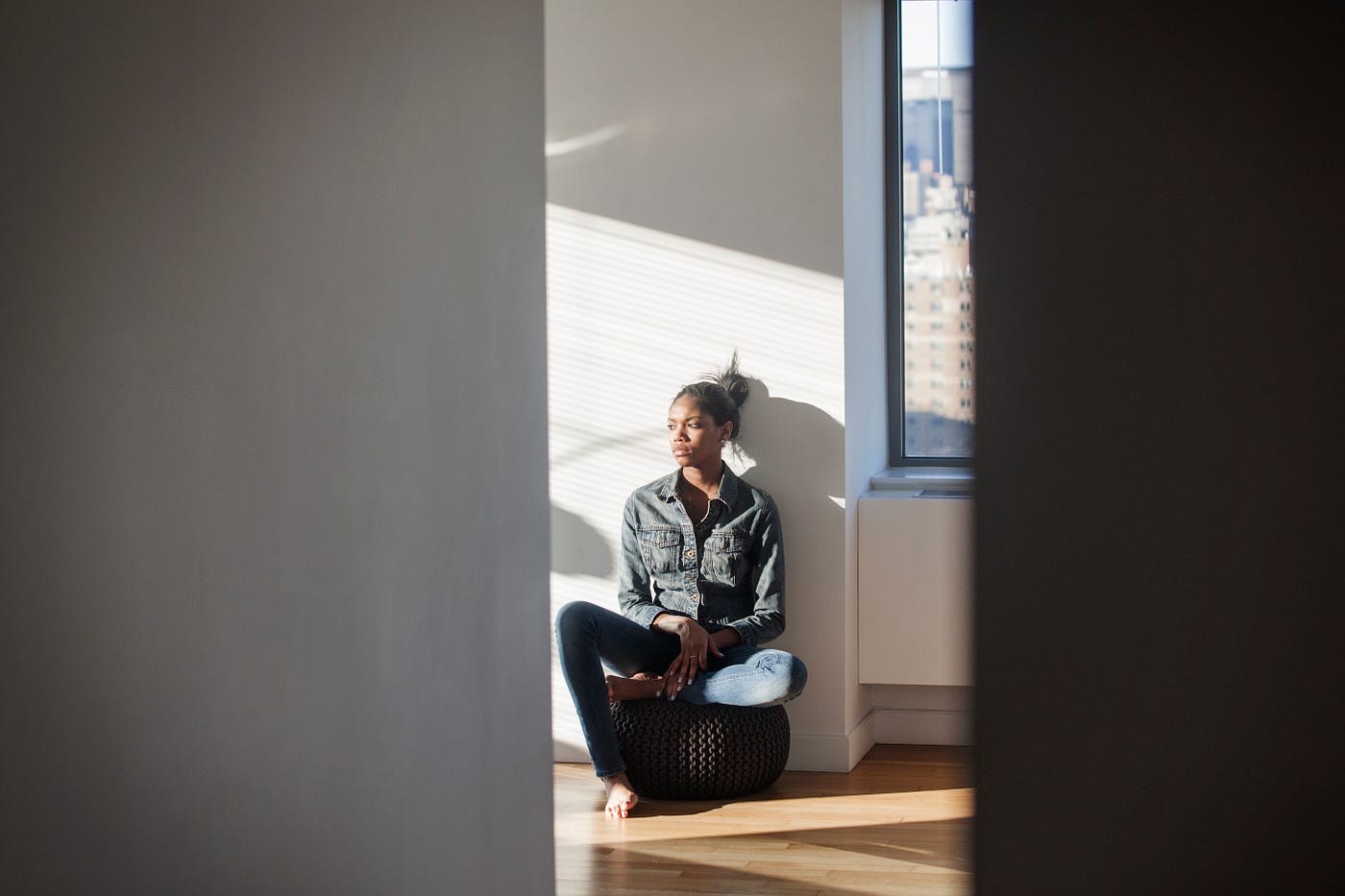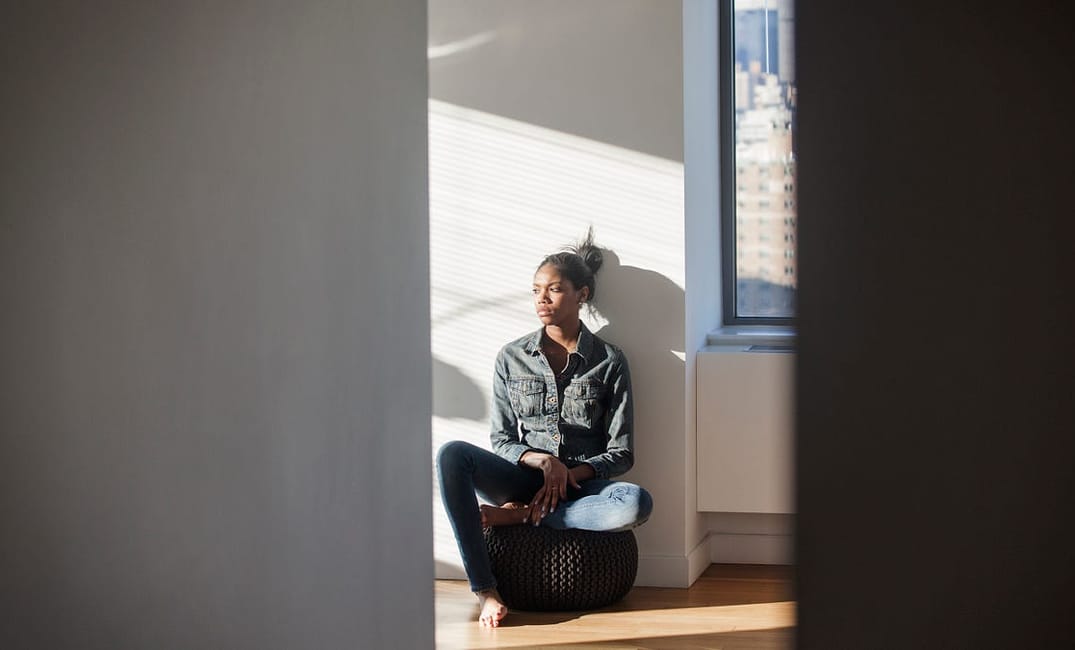
Bent over, hands on knees, I gasp for breath as tears begin to stream down my face. Others walk by me on the trail, happy as can be. “How can they be so oblivious? Do they not realize what’s happening right now?” I wipe my face and start my run again, only to stop again a few minutes down the way, unable to contain my emotions.
Running has long been a source of escape for me — a way to clear my mind. But lately I can’t even rely on that to get the mental break or clarity I so desperately need.
Sign up for The Bold Italic newsletter to get the best of the Bay Area in your inbox every week.
“They couldn’t breathe, but I can” was on loop in my head as my feet hit the asphalt, going a far faster pace than I intended. My thoughts were flooded with the images of Sandra Bland, Trayvon Martin, Ahmaud Arbery, and George Floyd. Lately, I haven’t been able to escape the guilt. The guilt of not doing enough to help end the violence and racism that my fellow Black Americans face.
#BlackLivesMatter started when I was 16 and the Black community was grieving over Trayvon, who was just a year older than me at the time he was killed. Now I’m 23, and names have become hashtags so frequently that it feels like an ad campaign. An ad campaign for our lives.
It feels futile. I find myself in the same situation I was in back in 2014. It was the start of my senior year — and the start of my guilt — when Michael Brown was killed in Ferguson. It was then that I first used my voice to explain the importance of #BlackLivesMatter.
I sat in homeroom, surrounded by white faces, explaining that Ferguson was burning because its Black citizens were grieving the death of Brown and the larger systemic racism that contributed to it. I had to explain to my classmates, and my teacher, that it wasn’t a bunch of “thugs” or “criminals” who were unjustly angry. But my pleas for understanding and compassion fell on deaf ears. They dismissed my explanation and went back to scrolling on their phones, unable to relate to my grief. The action showcased their privilege, the ability to move on so quickly since they weren’t personally affected.
I was saddened. Had I not explained it well enough, I wondered? Looking back, what occurred should have been no surprise: I was a Black girl in North Carolina, attending school in a district where it was considered okay to take kindergartners to a cotton field and have them pick cotton on a field trip. And no, we didn’t get to keep what we picked.
In the years since, one incident of police brutality after another, social media has grown exponentially. On the one hand, this has been helpful for engaging and reaching people instantly; word about the next social cause can now spread faster than once imaginable. Activism has a digital front. But on the other hand, it has served as a catalyst for my growing guilt over not doing enough to help the cause.
When I first heard of George Floyd’s death, I stopped in my tracks. I hadn’t fully come to terms with my feelings surrounding the death of Breonna Taylor, 26, whom police officers shot after barging into her home in Louisville, Kentucky, in the middle of the night. That happened in mid-March, and here we were again starting the next segment of the campaign. Again, police wrongfully killed a Black citizen. Murdered him.
I went searching for articles on George Floyd and came across the video. Typically, I am not one to watch videos of Black Americans being killed — I refuse to willingly engage in the trauma they perpetuate. I quickly closed the tab as I realized what was about to unfold. The video has been posted everywhere, screenshots of George’s last moments shared across media outlets. No matter how hard I try, the footage continues to enter my life. I can’t stop thinking what if that were my brother or my dad? It’s far too easy to picture my loved ones in similar situations. My heart physically aches at the lack of respect given to the family in their time of grieving.
George’s death has broken open the dam holding back the anger of Black Americans. I can’t scroll Twitter, Instagram, or Facebook without seeing coverage of the multiple protests across the nation. Something is shifting. Many of my mutuals, who are spread all over the country, are posting videos or photos from the marches they have attended.
When I’ve thought about monumental, historic moments like this occurring, I thought I would be out there on the front lines confronting the oppressors head on. Yet I’ve found myself inside, working in my own individual ways on the fight.
Yet I haven’t stood among my brothers and sisters on the streets protesting. I’ve posted to social media about police brutality and that silence is siding with the oppressor. I’ve donated to bail funds and signed petitions. I’ve had tough conversations. But I constantly find myself asking if that’s enough.
Times are about to change, at least I hope. I’ve seen more non-Black folks posting in solidarity than ever before. When I’ve thought about monumental, historic moments like this occurring, I thought I would be out there on the front lines confronting the oppressors head on. Yet I’ve found myself inside, working in my own individual ways on the fight.
Why am I not out there with them? This question has riddled my mind. I want to be in the streets, but I find myself staying home. That wouldn’t have happened in the past. As an undergrad, I wasn’t afraid to speak up and argue with folks in class or go out to protest in the streets. My dad would jokingly call me Angela Davis.
It’s like this time the years of explaining the systematic issues of racism have caught up to me. My mental exhaustion has begun to manifest physically, making it hard to focus on everyday tasks, let alone go out to the streets. I’ve realized that protesting isn’t my path to healing. I’ve learned that it’s not selfish to pause and take time to process emotions on my own. My mental health can’t afford to take a back seat if I plan to be involved in the fight for the long run.
So, for now, I stay indoors while others are facing pepper spray, tear gas, and rubber bullets, and I feel ashamed that I’m not with them.
I’m still processing my thoughts and emotions, and I use that as justification. I’ve been telling myself it’s okay to stay home and fight the battle on another front, and that I need to protect myself so I can help in other ways. Nonetheless, the guilt keeps coming to the surface, leading to emotional outbursts. Tear-filled, gasping-for-breath outbursts.
My boyfriend, Kevin, has reminded me that it’s not all about the big impacts — that the smaller ones matter, too. If my social media posts, my donations, my research, and my talks with people one-on-one can expand the view of one person, that’s a change, right? But how do I compare my small acts to the large shifts I see plastered across my feeds?
Taking a step back, I can sometimes get a moment of relief. Taking care of myself, my family, and my friends is also important. Activism comes in many forms, from organizing a protest to providing funds used to gather supplies. I tell myself that no one action weighs more than the others.
Honestly, the guilt is still there, and that isn’t so bad. I’ve come to accept it, even welcome it, as it pushes me to get and stay involved in creative ways. The constant feeling like I’m not doing enough means that I’m not happy with the status quo, and I want to help make a change.
If I were to lose the guilt, I would lose that drive.
Sign up for The Bold Italic newsletter to get the best of the Bay Area in your inbox every week.







